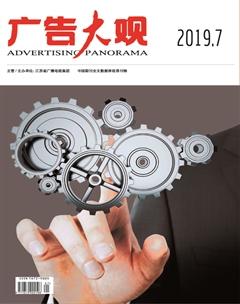Translation and comparison of English idioms
Introduction:There is no correlation between the English expressions with rich connotations between the Anglo-American culture and the Eastern culture,which makes it difficult to find the corresponding to express Chinese idiom at the time of translation. In this case,it has caused some obstacles for cross-cultural translation. Most of the translations only retain their own meaning,and discard some of the image meaning and cultural connotation of English,or use other Chinese metaphors in English so that metaphor can be replaced.
1 The cultural differences between English and Chinese idiom
Chinese and English are the ancient languages used by people in the long years. Under different development backgrounds and different use environments,the two languages gradually evolved into different characteristics,and let us see two in the study of language. The differences in culture and the reasons for these differences.
1.1 Differences in geographical environment
There are obvious differences in geographical location between the UK and China. The composition and application of many vocabularies are due to the specialization of the geographical environment.
1.2 Differences of customs in english-chinese translation
Custom is a social phenomenon. Bread,for example,in Britain,bread is the main food. The idiom "earn bread" is now translated to earn a living. Or taking bread out of someone's mouth,translated as taking someone's bowl. But in China,because jiaozi is a very important food,So the custom is different,the idiom that each place produces is different also.
1.3 Differences in history
Both China and the UK have a long history and rich culture,many idioms are mythological mapping idiom with very obvious mythological features. the UK pays attention to Greek culture,while China pays more attention to some mythological stories.
2 Common Translation Method
Translation is to translate one language into another to deepen readers' understanding of culture in different countries. However,the translation of idioms must understand the connotation and cultural background of some idioms,otherwise the translation will encounter obstacles.
2.1 Literal translation Method
There are a small amount of the same or similar idioms in English and Chinese idioms,these idioms literal meaning,image meaning the same or nearly,implied meaning is the same,such idioms of the literal meaning and image meaning righteousness convey the cultural information is the same,can translate. Such as,easy come,easy go“來得容易,去得快”。
2.2 Liberal translation
When there is a contradiction between the ideological content of the original text and the expression of the translated text,the literal translation method should be adopted to deal with it. Free translation also requires the translation to express the content of the original text more accurately.
2.3 Borrowing an equival ence
Some English idioms and Chinese idioms have the same meaning,the same emotional color,the same or similar image,their own national color is not very strong,in this case,translation can borrow its target language. 例如:Look foraneedlein ahaystack 大海捞针。
2.4 Annotation
Many English idioms are derived from historical allusions. They cannot be directly understood and translated from the literal language. At this time,literal translation and annotation should be adopted. For example,"as fair as Helen" is translated as "如海伦般美丽".
3 Conclusion
In summary,Although the vocabulary of English and Chinese is very different,the language is derived from the development of history. Therefore,while learning English we can integrate the essence of Chinese in order to make English learning easier.
Reference:
[1] Nida E.A Language,Culture and Translation [M]. Shanghai:Shanghai Foreign Languages Education Press,1993
[2] Chitra Fernando,Idioms and Idiomaticity Shanghai:Shanghai Foreign Language Edcation Press,2000
[3] Ross Idiomatic Translation [M]. Hongkong:Hongkong branch of commercial press,1978
[4] Edward Taylor,Primitive Culture [M]. British,1871
作者简介:李玉兰,1996年8月17日出生,女,汉族,四川资中人,攀枝花外国语学院,本科生,学生。
(作者單位:攀枝花外国语学院)

